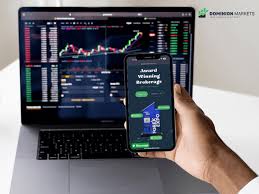
In the world of forex trading, knowledge is power, and understanding the regulatory landscape is crucial to success. A key component of this landscape is the forex trading license, which serves as a legal requirement for brokers and traders in many jurisdictions. This guide will delve into the specifics of forex trading licenses, exploring their significance, the application process, and how they contribute to a secure trading environment. If you’re interested in having a seamless trading experience, check out forex trading license trading-cambodia.com.
What is a Forex Trading License?
A forex trading license is an official authorization that allows a broker or financial institution to operate in the foreign exchange market. These licenses ensure compliance with local laws and regulations, promoting transparency and protecting traders from potential fraud. Since forex trading involves high capital and significant risks, regulatory bodies impose licensing requirements to uphold the integrity and stability of the market.
Types of Forex Trading Licenses
Forex trading licenses vary significantly from one jurisdiction to another. Depending on the regulatory body’s standards and the complexity of the market, these licenses can be categorized into several types:
- Full License: Offered by major financial authorities, this type allows firms to offer a wide range of trading services to their clients.
- Small License: This is typically for smaller firms or individual traders and may impose stricter limitations on transaction volumes and service offerings.
- Market Maker License: Market makers take on financial risks to facilitate trading, often needing a specific license detail to operate effectively.
- Introducing Broker License: This allows individuals or companies to act as intermediaries, introducing clients to trading platforms without holding client funds.
Why is a Forex Trading License Necessary?
The necessity for a forex trading license cannot be overstated. Here are several key reasons why obtaining a license is crucial:
- Regulatory Compliance: A license ensures that the broker adheres to the rules set by financial regulators, fostering a trustworthy trading environment.
- Client Protection: Licensed brokers typically must maintain a suitable capital reserve and segregate client funds, shielding traders from potential financial malpractice.
- Reputation and Credibility: Having a recognized license enhances a broker’s reputation in the industry, attracting more clients who prioritize safety and security.
- Access to Markets: Many forex trading platforms or liquidity providers require affiliates to be licensed, enabling access to essential market services.
The Process of Obtaining a Forex Trading License
The process of obtaining a forex trading license varies depending on the jurisdiction. However, it generally follows these key steps:

- Choose a Jurisdiction: Research and select a jurisdiction that aligns with your business goals and operational needs.
- Prepare Documentation: Compile necessary documents, which may include a business plan, financial projections, proof of identity, and compliance procedures.
- Submit Application: Apply to the relevant regulatory authority, ensuring all required information is accurately provided.
- Meet Capital Requirements: Many jurisdictions require the broker to maintain a minimum level of capital, which serves as a buffer against losses.
- Complete Audits: Be prepared to undergo financial and operational audits as part of the review process.
- Receive Your License: Once all requirements are met successfully, the regulatory authority will grant a forex trading license.
Key Regulatory Authorities for Forex Trading Licenses
Different jurisdictions have various regulatory authorities overseeing forex trading activities. Some of the most notable ones include:
- Financial Conduct Authority (FCA) – United Kingdom
- Commodity Futures Trading Commission (CFTC) – United States
- European Securities and Markets Authority (ESMA) – European Union
- Australian Securities and Investments Commission (ASIC) – Australia
- International Financial Services Commission (IFSC) – Belize
Understanding the Costs Involved
The financial commitment involved in acquiring a forex trading license can be substantial. Beyond the initial application fee, other costs may include:
- Licensing Fees: Vary by jurisdiction and may require additional costs for renewals.
- Compliance Costs: Regular audits and compliance checks may necessitate hiring legal consultants or compliance officers.
- Operational Costs: IT infrastructure, employee salaries, and marketing expenses can add up quickly.
Challenges in the Licensing Process
While obtaining a forex trading license is essential, the process is not without its challenges. Some common hurdles include:
- Stringent Regulatory Standards: Each regulatory authority has its unique set of requirements, and meeting them all can be daunting.
- Time-Consuming Process: The application and review process can take several months, delaying the start of trading operations.
- Ongoing Compliance Obligations: Licensed brokers must continuously comply with regulations, which can increase operational complexity.
Conclusion
In conclusion, obtaining a forex trading license is a foundational step for any broker looking to thrive in the competitive and dynamic forex market. While the process may be complex and fraught with challenges, the benefits of legal compliance, client protection, and enhanced credibility far outweigh the costs. Remember, trading in a regulated environment is not just a requirement but a pathway to building long-term success and trust with your clients. Always ensure to stay up-to-date with regulatory changes and prepare to adapt your operations accordingly.
